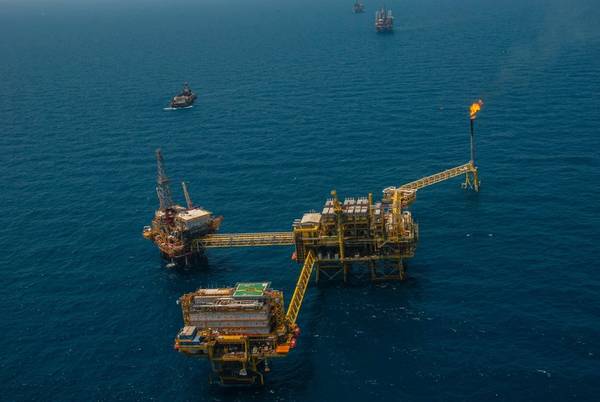
Mexico's state-owned oil company Pemex plunged deeper into so-called junk status on Monday after a major credit rating agency downgraded its long-term debt by one notch.
Moody's Investors Service cut Pemex's credit rating to B1 from Ba3, or four notches into the agency's speculative status, reflecting a higher risk of default for the company formally known as Petroleos Mexicanos.
The move marks just the latest hit to the ailing Mexican oil company.
Two of the three main credit rating agencies already stripped Pemex, the world's most indebted national oil company, of the coveted investment-grade rating in 2020.
In a statement, Moody's flagged Pemex's high liquidity risk, massive debt payments due by 2024, negative cash flow plus large amounts of needed external funding.
As of March, looming debt payments include $5.1 billion due in 2022, $7.5 billion in 2023, and $8.9 billion in 2024, according to Moody's.
"Pemex will have substantial negative free cash flow in the next 12-18 months, driven by insufficient operating cash generation to pay interest expenses, taxes, and capital spending," said Moody's.
"Pemex's access to the capital markets is currently limited given its high intrinsic credit risk."
Neither Pemex nor the energy ministry immediately responded to a request for comment.
Victor Gomez Ayala, a former Mexican finance ministry official, stressed the rating agency's "very highly negative" assessment on Pemex's economic, social and governance considerations.
"The forthcoming debt issuances of the company will inevitably be linked to such principles and that will likely put upward pressure on their yields," he said.
Moody's noted Pemex scored poorly on all three factors, including "very high carbon transition risk" as other oil companies move towards cleaner energy.
While downgrading their credit rating, Moody's did move Pemex's outlook to "stable" from "negative."
Last week, S&P Global Ratings also revised Pemex's outlook to stable from negative, after it reviewed Mexico's long-term outlook. Still, S&P pointed to the Mexican government's inability to push through an electricity market overhaul as the reason for the better outlook rather than any structural change.
(Reuters - Reporting by Stefanie Eschenbacher in Mexico City; Additional reporting by Arunima Kumar and Shivani Tanna in Bengaluru; Editing by Devika Syamnath and David Alire Garcia)



